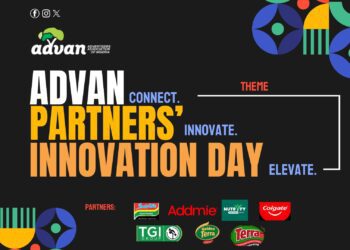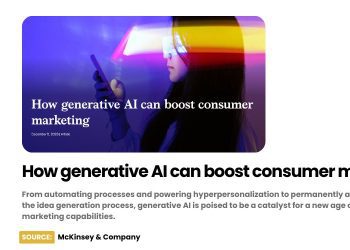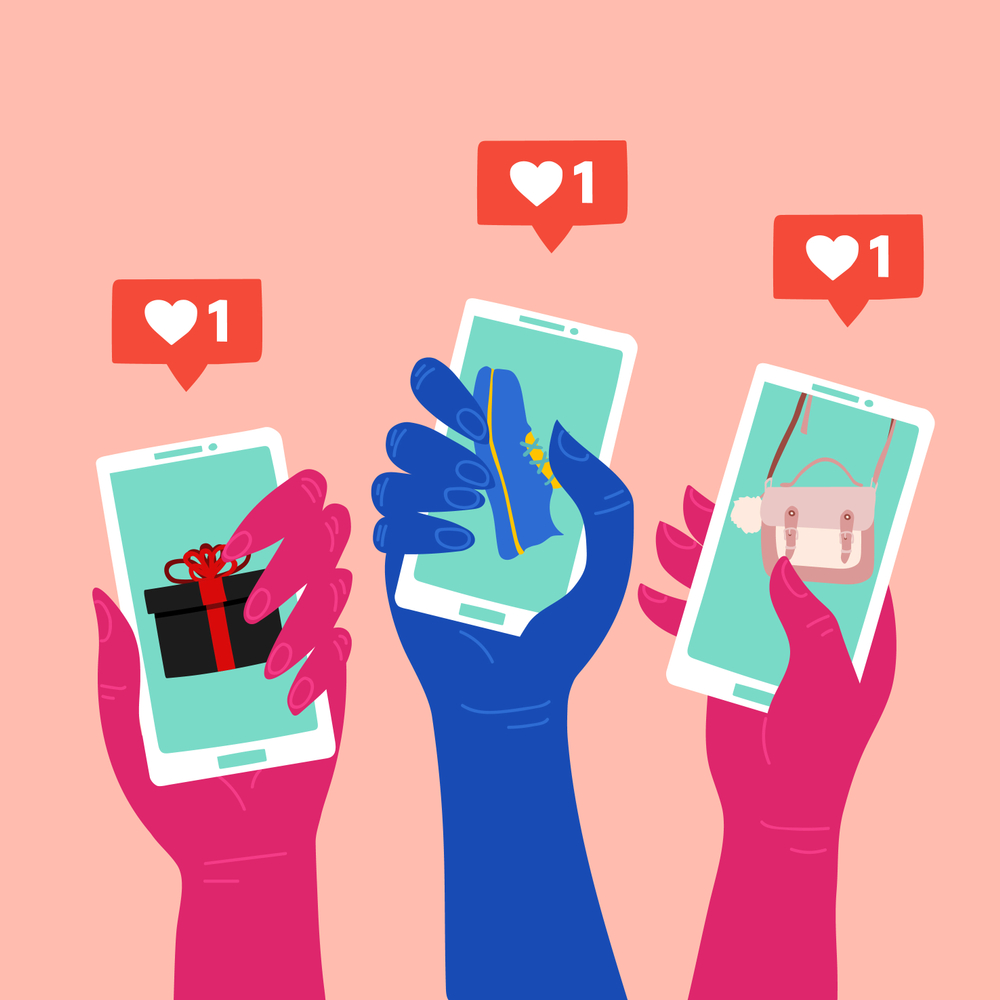The business of marketing and the art of storytelling have a binary relationship that ensures one is impossible without the other. The legend of the used car salesman is the greatest example of how marketing and storytelling met, courted vigorously, married each other and have been inseparable for ages. The used car salesman discovered that with a well-told story the prickly details of a dilapidated car might not matter to a customer as much as how the story that came with it made them feel. So I must begin this with a salute to all of us in this room who have created and nursed a worthy ‘story’ about brands that have made consumers ‘feel’ better, feel greater, and feel more fulfilled about their lives and their aspirations. Many of the works that you create have given your consumers moments that many hold dear for a long time. As consumers, we have hummed and sang the jingles. We have laughed and smiled knowingly at the images and imagery of your commercials. Some of us remember the happiest moments of our youth by the TV commercials and brands of the time. And we have put our hard-earned money behind products because its brand-story connected us to our best selves.
I have not only been a consumer, but I have also had the privilege of a glimpse behind the magic curtain of brand marketing. My career in advertising, both in Lintas in the late 80s and later at STB-McCANN in the 90s lasted only 13 years. But I got the general idea of how things worked. So When I got the invitation to speak here today, I knew it was a great opportunity for me to celebrate an industry I hold dear but also an opportunity to articulate for our common reflection how storytelling is critical to this industry but also to define why.
First, Stories are important parts of what it means to be human. When in August of 1963, Dr. Martin Luther King delivered his popular speech, ‘I have a Dream’, to more than 250,000 people, it sure was not the speech that moved them to action; they have heard several speeches before then, and that particular speech was not the only speech MLK ever gave, there were several other speeches from him, so, why was the proclamation of one man’s dream a catalyst for one of the biggest civil rights movements in World history? It was the connection that was created by the story behind the speech. The mass of over 250,000 people that gathered at Lincoln Memorial on that day have their own stories; something they wished was their truth, their reality, an idea they have sold to themselves repeatedly. So, when MLK put their stories together for them in the form of a speech, a mass action was inevitable.
Equally, antisemitism was not always a popular ideology of the German population until a story was dropped in. Adolf Hitler came up with the story of hierarchy of races, leading the larger German population to believe that they are a superior race, and the need to rid Germany of minority groups that the Nazi labelled ‘asocial’. By the time Hitler’s stories took root, a large part of the German population was ready for the most horrible racial cleansing in human history. What came to be known as the holocaust did not start with the speeches of Adolf Hitler, but with the stories that the mass of the people are willing to believe, something they wished was their truth and could identify with.
So Stories are powerful, especially in their very capacity to cause a mass action and move humanity in a particular direction. Whilst it inspired a mass of people to stand for their rights to vote and change their own destiny, it gave another mass of people the conviction that they are a superior race, so much so that they would almost wipe out a whole race that they considered a threat to themselves.
Stories are that powerful.
We tell stories for the experience of being alive, how else would we understand the universe if stories are taken out of it, how do we learn what is harmful and what is beneficial, how do we learn to empathize or reach out for help, how do we learn to be cultured and create civilizations? It is through stories that we come close to an understanding of the complexities of our worlds. Who we are, where we come from, how we got here, what it means, and where we can go from here form the stories we tell ourselves and the stories that are told about us.
Humans are social beings, we depend on community and connections to survive; storytelling is the tool we use to create that connection. Stories are the common ground upon which a community is formed and perpetuated. To belong to a tribe is to believe and share the story of the tribe. The conquest of a tribe is never complete until their story is supplanted; to rid a people of their story is to conquer them, to numb their defenses and redirect their loyalty. The impact of colonialism on many African societies can be understood through this lens, once the colonialists succeeded in getting African societies to doubt the authenticity of what it means to be who they are (their story), they became perfectly colonized – their loyalty is redirected to their colonial masters, and till this date African countries still struggle with colonial and post-colonial issues.
What do we not know about the power of storytelling? It is there in our daily lives and in the works we do; in the anecdotes that we tell our friends, the books we read, the films we watch, the brands we push, and in everything that we stand or fall for. Stories add emotional value to everything. They can interpret, inspire, invent and instill our history, our hopes, our common visions of a new future.
One of Nigeria’s greatest storytellers passed on this year and what a better moment for me to pause and pay tribute to Uncle Ted Mukoro who was truly one of the great Masters of storytelling especially in brand marketing. I began my career working under the tutelage of Uncle Ted in Lintas advertising somewhere in Ikoyi in the late 80s. By the time he passed this year, uncle Ted was still writing and consulting on scripts for many agencies. His works, more than 40years in advertising are an acute demonstration of the power of storytelling, evident in the brand connections he created constantly with his audiences using emotional details that are cross-cultural and that the audience identified with.
Who can forget in a hurry the success of the ‘Weke-Weke’ copy for VonoFoam, or ‘Black thing good o’ for Guinness or ‘Shine-shine Bobo’ for Star Beer? His copy lines became cultural lingo for pidgin English speakers in the country. Uncle Ted’s commercials are a classic example of the power of storytelling – each one had something that expanded language, gave a people something they connected with regardless of their tribal background, and quite importantly, it created a ‘presence’ that made the brand itself larger than life. Even if you take the brand’s name out, ‘Shine-shine Bobo’ still had a meaning for the audience that was uniquely connected to the brand. That level of storytelling creativity also nurtured many other brands that Ted Mukoro worked with. On this night of celebrations, I very much hope that Uncle Ted’s warm spirit looks down on us all with a smile.
When one thinks about the powerful connections that the works of ‘Uncle’ Ted created across cultures in Nigeria or the connections created by the stories behind the speech of Martin Luther King, or that of Adolf Hitler, it immediately becomes easy for us to understand that stories are not just powerful, but also that they are in the end just tools. So, our conversation must then naturally shift to what we do with the power of storytelling.
Armed with the power of stories, we can move a people, or we can bury a civilization. No time in human history is this ever so easily achievable than now when we live in an age where we have increased our capacity to create connections exponentially because of digital technology, specifically social media. Digital technology and social media have reinvented and revolutionized storytelling. They have added a new dimension to the matrix of human connection. That new dimension is the re-telling of stories. Today stories do not travel in the state that they are originally told, stories evolve in their essence and form through the re-telling of a story by an active audience ready to co-curate its connection and relevance to their world.
If one considers the significance of the power to simply ‘Share’ on social media, then we would begin to understand the concept of influence and community from a different perspective. I call it power because that is how I see it and how the owners of the social media platforms see it. Whether you are sharing on Facebook, retweeting on Twitter, regranning on Instagram, and so on, what you are doing is actually exerting your influence on your community – people who believe that you are almost always right, who are willing to laugh at your jokes, who think that you are witty, and those wise words on your wall are actually from your personal experiences. But even more than that, you are exerting influence on the community of your community (friends of friends), people who you do not know directly, but they are connected to your friends on social media and just because of that they can become your follower, your fan, or even a disciple.
You may remember the stories behind these hashtags – #KeepTheChangeBae, #JollofWars, #HallelujahChallenge, #EndSars, #MeToo, #FreeTheSheeple, #NotTooYoungToRun, #BAAD2017, #EverywhereStew. The stories behind the hashtags are not directly yours, but they got to you, you identified with some of them, you argued against some of them, they got you talking, and you shared many of them. You don’t know where many of these stories started from, but you joined the conversation and pushed them within your sphere of online influence (your community). The share button allows us to re-tell stories and that is where its power lies.
When storytelling collides with the possibilities of technology, it becomes ten times more powerful. Whatever story we tell is the first level in the multiplex of communication that can follow that story. Depending on the size of your community online, your audiences would pick that story and retell it in their own ways. You only get the conversation started, you don’t know where it can go.
Technology has given us a village square where stories are traded, and legends invented. Incidentally, the village markets in African societies were as many places to buy and sell as they were where communities connected. From the tales of the hunter’s exploits in the forest to the political happenings in the palace, the market day brimmed with the possibilities of new tales. So storytelling has always been the language of commerce and its value in the marketplace is an African heritage. The remarkable difference now is that the market square of stories is now virtual, global and ten times more immediate.
Which leaves us with the important question of Where does that leave our brand stories? Well, brand stories are now our stories which we as consumers want told from the uniqueness of our identity, our cultures, and our worldview. It is not enough for brands to just position itself for sales with a sleek positioning of what it can do for us. It must first prove itself to be one of us with all the nuances of imagery and sounds that make our stories told compellingly. It must actively deepen the living experiences of us, its audiences. Brand stories must speak to the things that matter most to us, it must inspire and educate us. Brand stories must provoke and incite reflections and conversations around a community, around service and around human growth and development.
Some brands stories are already looking in this direction. Recently, we have seen Ads that have taken common nuances of our cultures and woven captivating stories around it. We can connect with the Airtel campaign because we are all familiar with stories of ‘Mothers-in-law’; the intricacy and humour are not new to us and we can connect with it emotionally. The Union Bank Ad gives us hope; if there’s anything we need in abundance in Nigeria, it would be hope. We preach it in our places of worship, we sing it in our songs, we encourage ourselves to have hope, so, when a brand tells us a story encouraging us to have hope, it’s like giving life to our story. We can identify with it, and so we connect with it. Access Bank tells us about the dignity of labour, and it resonate with us.
We already have proof that our stories can travel and cross international borders. The Nigerian music and the film industries have shown this. These industries have garnered global recognition because they have owned their stories. The penetration of international music in Nigeria is at all time low at the same time that our artistes are being recognized on the World stage. It is said that you cannot be successful in the Nigerian music industry if you are not infusing local languages, nuances, and slang into your lyrics – all these elements are indices of our story. Now Netflix is looking in the way of Nigerian stories, and these are not stories told with the help of foreign crew, but truly homegrown effort.
Brand stories needs to collaborate more with local storytellers and capture the best of our experiences in the stories they tell. We have seen a lot of celebrity endorsements from brands, but that cannot be the end of it. We cannot merely take advantage of the star power behind these celebrities while ignoring the stories that many of them rode on to stardom.
We need our brand stories to mean more; to find ways to help our audiences leave their foxholes and consider new ideas. We have a responsibility to use all the tools we can find.
We must fight to make our brand marketplace more than a place of entertainment, but also it must be a place of reflection, discuss, provocation and debate. Our storytelling must breath new perspectives and new understandings to help us engage our contemporary history with all the power that new technology has placed in our disposal.
We need to be more passionate about the power of visual images to provoke and mediate human experiences. We must seek to create visual engagements in photography and storytelling that are provocative in the multiple dimensions of their meaning. Our brand creative aspirations must be to connect individual experiences with universal meaning with visual and motion-picture expressions that free the imagination beyond cultural and urban constrictions, illuminating towards possibilities. If our stories do not capture in present-tense the rapidly evolving archives of Africa’s social, political and economic history, then, what would our stories mean, even for ourselves.
A story is great when it moves people to take action and foster change. In what direction our stories move people becomes our historical and moral burden to bear.
(A presentation by Femi Odugbemi, at the 25th anniversary Dinner of the Advertisers Association of Nigeria ADVAN)









